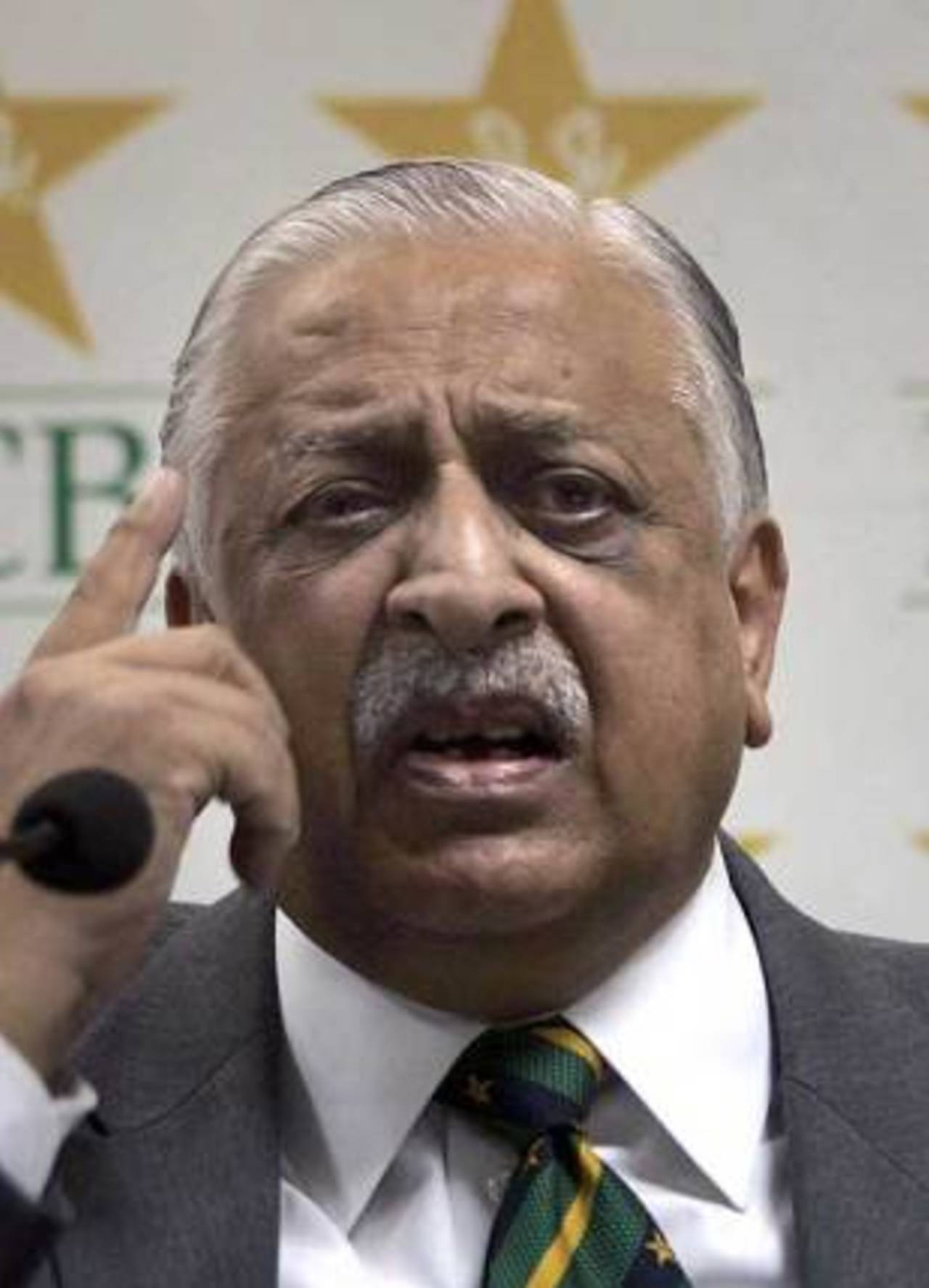The immediate point that comes to mind is, who gave the PCB the keys to this asylum? The merits and demerits of what is effectively the
biggest purge of the Pakistan cricket team in years we will come to shortly but, in effect, the PCB has cleaned up an asylum in which its members are as much inmates as the players.
The basic question that arises, after all, is if the team is racked with unrest, indiscipline and factionalism and is performing so poorly, is it operating within a vacuum? It is not. It is selected by men and run by men, men of the board. If the team is rotten, then are the people who are in charge of running it not the same? The players have been singled out, but the managers, selectors and board officials who run the show have sidestepped the mess nicely.
If you can get beyond that, then there is no questioning that this is the most significant action the PCB has taken in many years against players. In one fell swoop, it has banned three men who captained the side last year. Of them, two have been handed open-ended bans, to be revised at the board's discretion. Another captain has been put on probation for six months and fined, as has the vice-captain of the last tour. Reputations and seniority have not been spared. The Qayyum report was similar, implicating big names, but that was for a graver offence and was shaped globally; on matters such as indiscipline, the actions are unparalleled.
A number of things have fuelled the severity of the punishment. Pressure on the board to do something, anything, has been intense, more so because of its general ineptness and failures elsewhere. It had to be seen to be doing something, and a man can only take so many grillings from parliamentarians.
But such dirt has built up over the last year. Shoaib Malik was removed. Under his replacement Younis Khan, players were forever conspiring. Mohammad Yousuf became captain only to ultimately engage in an open and stupid battle with Malik. The sins of Kamran Akmal and Shahid Afridi were public ones.
Additionally, results have been pathetic. Players' popularity is probably at its lowest in some time, which undoubtedly helped the board in its decision. So steadily, over the years, such a picture of unrest and unruliness, factionalism and unchecked player power has emerged, and such a mood of discontent created, that all dirt had to be swept away. The official board line, that it wants to set an example for future generations, almost doesn't matter. The reaction is mixed: some voices say it had to happen, some say it's too much, as clear an indication as any that there are no heroes here. In fact there are mostly villains.
Trouble lies in the days ahead. Because the punishments are so severe, the reasons behind them must be made clear. The board is not willing to go public with the report, but that will be grave folly. If the PCB is not seen to be transparent in the way it has handled this, its actions have no benefit whatsoever.
Questions will be rightly asked as to the precise factors that led, in particular, to the banning of Rana Naved-ul-Hasan and Malik for a year and of Younis and Yousuf for an indefinite period. That kind of punishment is prompted only by the most serious transgressions and if the board doesn't come totally clean on what led to it, rumour-mongering and gossip over coming days of the worst kind can be expected. That, Pakistan cricket can do without. Already there is confusion; the bans on Yousuf and Younis, the board had to clarify, are open-ended and they can be picked again depending on the board's mood.
Talk of legal action is inevitable; such are the happy days with an empowered judiciary and legal fraternity. In any case it has not been uncommon over the last two years for Pakistani players to take the board to court and it cannot be ruled out here. It will be a waste of time, for even if a court overturns the ban, it cannot force the board to select players.
Nothing is permanent in Pakistan. It is worthwhile to bear in mind the summer of 1976, when a similar battle erupted between board and senior players. It was a petty pay dispute, but it soon flowered into an almighty ménage a trois of ego clashes between the country's prime minister, Zulfiqar Bhutto, a close aide and minister Abdul Hafiz Pirzada and the board chairman AH Kardar.
Kardar sacked six big names, including Imran Khan, before a major tour to Australia. Within days, however, Pirzada - with Bhutto's tacit consent - had taken temporary control of the board, reinstated the players and Kardar fell in a matter of months. Old folks say that marked the beginning of unchecked player power in Pakistan cricket, the rise of the superstar. Some might see 2010 as the end of it.
There are only whiffs in today of what happened 34 years ago - for one, the players then had tremendous public support - but with an administration as bereft of goodwill, public trust and support as this one, nobody will bet against a similar endgame.
Osman Samiuddin is Pakistan editor of Cricinfo
